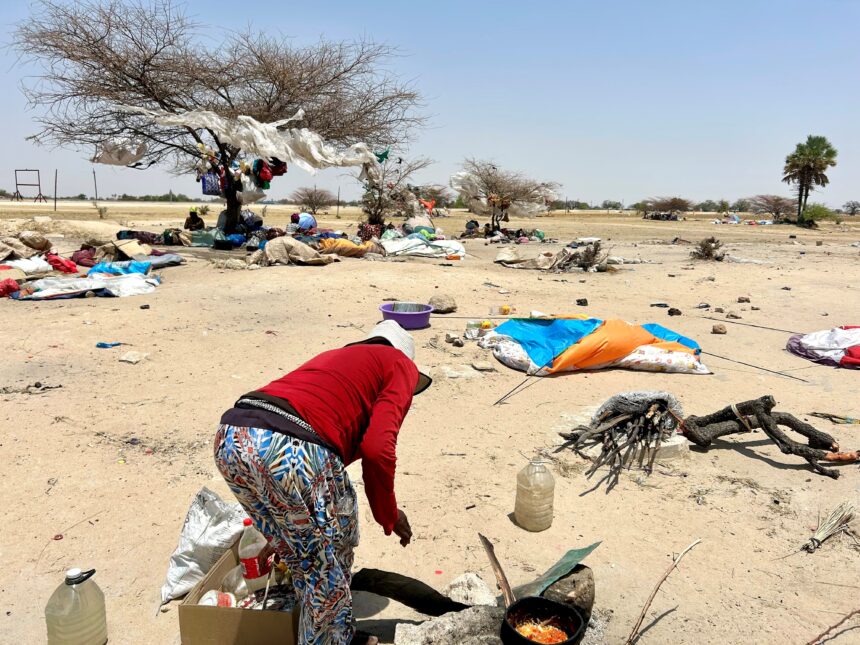OUTAPI – As the hot sun beats down relentlessly, a group of vulnerable pregnant and sick women have found solace under the shade of thorn trees which have shed
leaves.
This is about 400 metres from the Outapi District Hospital in the Omusati region.
Among the expecting mothers housed under thorn trees is Selma Malakia from Ruacana. She does not have any food, and survives from dustbins around Outapi before the municipality collects garbage.
“I cannot stay in the shelter at the hospital, as it is very full. That is why I came to look for a place to stay here, waiting to give birth,” she stated.
She sometimes eats rotten food just to keep her going, and is hoping to give birth to a healthy baby. Sonia Manuel from Angola has put plastic sheets on the branches of the tree to shield herself from the scorching sun.
“This is how we live. What can we do? We accept life as it is,” she said.
Maria Silas from Onawa village in the Anamulenge constituency, who also sleeps under the thorn tree, was found preparing lunch.
The mother of three was preparing tomato and onion soup without pap since she does not have maize meal.
“I am not feeling well. I have a breathing problem. That is why I decided to be near the hospital. I do not have transport money to and from the hospital every week,” she said.
She added that she lives like a wild animal as her body is exposed to wind, scorpions and snakes, especially during the night.
Silas and her fellow women rely on unpurified water from the canal for cooking, bathing and drinking. Christine Mwatilevi, another expecting resident of the makeshift shelter, was gathering old cement bags to use as a mattress.
She stated that as a pregnant woman, it is very difficult to sleep without putting something underneath to soften the surface.
“I am just nervous that I would give birth to an unhealthy baby, which will force me to stay longer in hospital,” she added. Mwatilevi, who is originally from Otjisangera village in Angola, said she has been living under the tree for five months.
Another expecting mother, Theresia Tobias from Otjitaazu village, is one of the women living under the tree. “We understand the shelter is full, but can’t we get another safer place than this one?” she pleaded. Approached for comment, Omusati health director Alfons Amoomo said Outapi’s expecting mothers’ shelter is not as full as they are saying. “Most of those mothers gathered there are from our neighbouring country, Angola. We have policies to follow on how one must be accommodated,” he noted.
Health minister Kalumbi Shangula said he was not aware of the women staying under the trees.
He said the policy is that if somebody is sick or pregnant, and deserves to be admitted, they will be admitted. But those who do not deserve to be admitted should stay at home.
Complaints
Shilunga Nangomba from Omushii village, a few kilometres from Outapi, complained about his cattle eating the plastic collected by expecting mothers who are gathering at a place where the cattle graze.
“The wind carries lighter materials, scattering them across grazing lands where cattle roam freely. This plastic is killing our animals,’’ he said frustrated.
Simson Shigwedha from Ohambalanganga village raised concern about plastic scattered around the grazing area.
“We had watched helplessly as our livestock grew sick, unable to digest the plastic that was poisoning their bodies. Their stomachs are so full of indigestible materials that they can no longer process food,’’ he complained.



